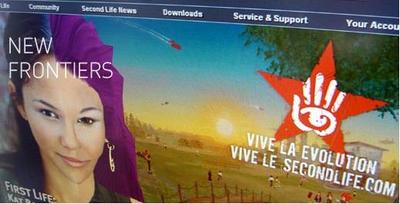Africa is proving an attractive destination for business process outsourcing but it has a long way to go to provide end-to-end services for cost-conscious multinational corporations. Egypt, Ghana and Tunisia are climbing up global rankings of the best destination for offshoring services... In a sector where the bottom line is the priority, lowering costs is a key consideration for companies looking to set up their own ‘captive’ operations. Employing an operator in Morocco, for example, costs around one-third of the price it would in France.

Africa’s BPO sector is dominated by the call-centre market. In South Africa, where consultants Frost & Sullivan estimate that the BPO sector is now worth $1.6bn, 67% of the market share comes from contact centres. Now, some large multinationals that are already used to offshoring their French- and Spanish-speaking operations in North Africa (Dell, CapGemini, Atos Origin and Accenture all outsource information technology services to Morocco), are now looking to sub-Saharan Africa. Accenture has launched a pilot offshoring project in Kenya, where Virgin Mobile Canada is also outsourcing its database management with MFI Business, and Deloitte is considering setting up a 500-seat accounting and financing centre…
Although South Africa is marketing itself as a ‘tier-2’ country and can already offer advanced financial and accounting capabilities that have been well-groomed by the country’s domestic market, Spiwe Chireka, industry analyst at Frost & Sullivan, argues that South Africa remains focused on call centres: “It will catch up with them because the value from contact centres keeps going down.” South Africa is “actually underselling its capabilities in other areas”, says Chireka, mainly because of the push to create quick jobs in contact centres that can absorb the unemployed.
One way countries can hope to avoid being pigeonholed is to look closer to home and act as a ‘nearshore’ hub for the African region. The Mozambican IT infrastructure operations of Sasol, the South African chemical company, are managed by Business Connection (BCX), a South African company that delivers regional support for AngloGold Ashanti and BHP Billiton…
Ghana, a relatively new BPO destination, plans to add another 5,000 jobs to the existing 3,000-4,000 by 2012… Ghana’s short-term strategy is to target West African telecom and banking companies. Pradeep Mukherji, partner at Avasant, a US consultancy hired by the Ghanaian government, hopes that Ghana will “act as the gateway to Western Africa”, with an ability to offer francophone and anglophone services. After 18 months, its strategy will shift to targeting the UK and US, with a long-term plan to move into knowledge-process outsourcing, such as legal and graphic-design services…
To attract such business, governments understand that they must provide incentives for investors. They fall into three main categories: tax breaks, infrastructure and training. Morocco provides all three as part of a strategy to attract 100,000 full-time offshoring jobs by 2015 and to triple the sector’s contribution to gross domestic product to 18%. Incentives include a training subsidy of €5,800 per employee, a 20% ceiling on income tax for fully-payrolled employees and five years full exoneration from corporate taxes.
It is still early days for the African BPO industry, and there may be dramatic global realignments ahead. Futurist Patrick Dixon says that wage inflation in China and India plus an acute shortage of middle-managers are changing the economics of offshoring. He notes that companies are already leaving India for Pakistan, Bangladesh and Vietnam…
Platform-based services, particularly for the anglophone market, where one company manages an entire end-to-end process are still out of reach of most African markets. While it will be a challenge to stand out from other emerging market BPO destinations in Eastern Europe, South-east Asia and South America, Africa is well-placed to compete for business in this shifting global arena.
By Gemma Ware


































